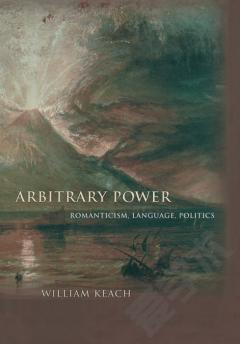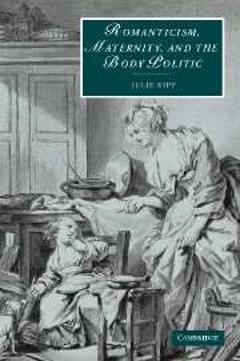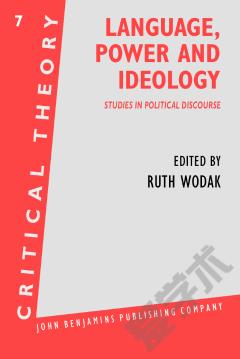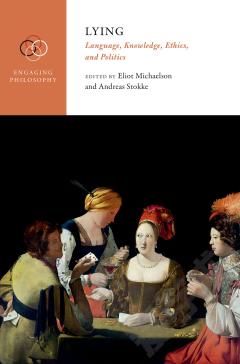Arbitrary Power —— Romanticism, Language, Politics
----- 任意权力:浪漫主义,语言,政治
William Keach. Arbitrary Power: Romanticism, Language, Politics. Princeton and Oxford: Princeton University Press, 2004. Pp. 191. $42.00. In his ambitious and brilliantly argued new book, Arbitrary Power: Romanticism, Language, Politics, William Keach surveys familiar terrain--the politics of canonical British Romantic poetry--with a sense of purpose that follows directly from the terms of his title. The political dimensions of Romantic poetry are rigorously studied here within the medium of language, considered first through Romantic and earlier Enlightenment linguistic theories, and then through the traces that such theories (and the concerns they raised) may be said to have left on the style of the major Romantic writers. In an earlier book, Shelley's Style (1984), Keach established himself as one of our most sensitive and insightful readers of Romantic writing. In welcoming the wider scope of this new study--in addition to Shelley, there are sustained considerations of Wollstonecraft, Wordsworth, Coleridge, Blake, Byron, and Keats--readers will find that Keach is as discriminating a student of class idioms and gender codes as he is of couplet structure and ottava rima form. He is also refreshingly direct about matters of literary-political value, and his willingness to admire Byron's materialism and Shelley's hesitation about direct action while taking a dim view of Blake's representations of political violence may well prove controversial. But the array of sensitive readings marshaled in support of closely argued judgments make this book impossible to ignore. At one point Keach takes Francis Jeffrey to task for a "vaguely generalizing" (53) response to Keats' Endymion: by contrast, he himself seems incapable of any critical response that is not as precisely formulated as it is vividly communicated. The opening chapter, "Arbitrary Power," introduces the central term that links power and language throughout the book, along with a telling paradox about its application and historical development. For it turns out that the "discourse of the arbitrary" (1) that traverses politics and linguistics over the course of the eighteenth and nineteenth centuries discloses "something arbitrary about the word arbitrary itself, something inherently and inescapably contradictory" (2). This instability hinges on the question of whether "arbitrary" identifies despotically determined will or rather indeterminate and unpredictable chance. The issue is important for Keach not simply because it cuts across two distinct flames of reference (politics and language) that are central to any understanding of Romantic literary institutions and practices, but also because it indicates something distinctive about the historical operation of those institutions and practices: What I want to insist on here is that in both political and linguistic frames of reference it is not only the doubleness of the arbitrary--its signifying at once absolute determination and utter indeterminacy--that characterizes the problematic I am attempting to define. It is also the interaction between the terms of the doubleness--the historical and social processes through which what is initially random and contingent becomes absolute, or conversely through which absolute will and authority give way to the random and contingent. (4) Beginning (as he ends) with Shelley, whose Defence of Poetry proposes that "language is arbitrarily produced by the Imagination," and deftly orchestrating a range of other poets and theorists, Keach first establishes the terms for the arbitrary Romantic sign by reading back to Locke and to Enlightenment conceptions of language and power, rather than following his own first impulse "to read forward and see Shelley anticipating a central tenet of Saussurian and post-Saussurian linguistic theory" (2). Yet the introductory chapter does move on to Saussure, Derrida, de Man, Chomsky, Bourdieu and others, showing how Enlightenment and Romantic treatments of the arbitrary sign in relation to arbitrary power "have persisted and confounded efforts to relate language as a formal system to its social origins, functions, and meanings" (6). â¦
{{comment.content}}








 京公网安备 11010802027623号
京公网安备 11010802027623号